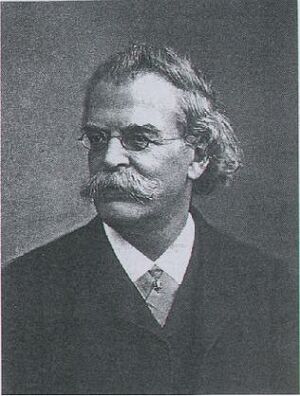Julius von Bernuth
German conductor and music professor (b. 8 August 1830 [N.S.] in Rees, Rhineland; d. 24 December 1902 [N.S.] in Hamburg).
The son of Friedrich Heinrich von Bernuth (1789–1839) and his wife Johanna van den Broek (d. 1845), Julius first studied law but then changed to music. After graduating from the Leipzig Conservatory he worked for some years as the conductor of the "Leipziger Singakademie". In 1867, he took up the offer to become artistic director of the Hamburg Philharmonic Society, and he would hold this post until 1894. Bernuth's tenure contributed greatly to raising and consolidating the status of the Philharmonic Orchestra as an independent ensemble. He also set up the Hamburg Conservatory in 1873 and was its first director.
Tchaikovsky and Bernuth
It was Bernuth who, in the summer of 1887, suggested to the publisher Daniel Rahter that he ask Tchaikovsky whether he would like to conduct a Philharmonic Society concert in Hamburg [1]. This led to the Hanseatic city being included in the busy schedule of Tchaikovsky's first tour of Western Europe as a conductor of his works in January-April 1888, and the composer would meet Bernuth on 5/17 January at the first rehearsal for his concert in Hamburg, which would take place three days later. Bernuth also hosted a reception and banquet in honour of Tchaikovsky after the concert [2].
Correspondence with Tchaikovsky
One letter from Tchaikovsky to Julius von Bernuth has survived, dating from 1889, and has been translated into English on this website:
- Letter 3791 – 10/22 February 1889, from Berlin
3 letters from Bernuth to Tchaikovsky, all dating from 1889, are preserved in the Tchaikovsky State Memorial Musical Museum-Reserve at Klin (a4, Nos. 250–252).
Bibliography
External Links
Notes and References
- ↑ Letter from Julius von Bernuth to Daniel Rahter, 1/13 June 1887. Quoted in Peter Feddersen, Tschaikowsky in Hamburg. Eine Dokumentation (2006), p. 18.
- ↑ See Letter 3468 to Modest Tchaikovsky, 10/22 January 1888, and also Chapter X of the Autobiographical Account of a Tour Abroad in the Year 1888.

